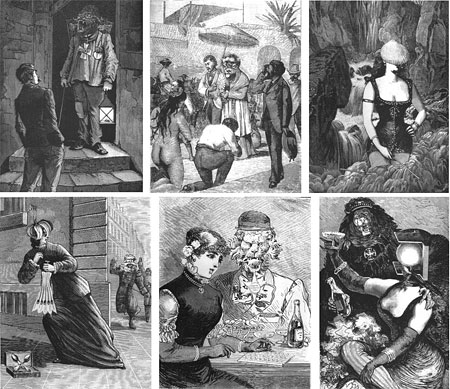I'll admit it, I had the negative stigma when it came to comics, I did...not anymore. I did my reading while typing reaction notes on my computer so rather than simply summarize I'll talk about some of the things I found most interesting about the opening 2 chapters.
Although it took an entire chapter McCloud did a great job of defining comics in an inch by inch kind of way to finally be: "Juxtaposed pictorial and other images in deliberate sequence, intended to convey information and/or to produce an aesthetic response in the viewer." a definition that is "neutral in terms of style subject matter and quality". I loved that McCloud presented his information in a way that forced to you ask a question he would answer on the following page.Through his history lesson we determined that hieroglyphics are the ancestors of the written word not comics and that scribes are to be read zigzagged from the bottom up (news to me!) as well as the fact that Family Circus and Dennis the Menace are, sadly, not comics. His mention of William Hogarth excited me because yes of course Hogarth did comics, amazing huge-scale ones but comics all the same.
"Many of the best comics of the 20th century have not been defined as so because of their superior quality “illustrators” “cartoonist’s” “commercial artist’s”' something that I think could've been hindered if whoever named the type of art didn't come up with the word "Comic" I mean come on if you don't want people to think you're art is a joke of course you wouldn't say you make comics.
The second chapter on the vocabulary of comics was very interesting starting with the defining of the "icon"(“Any image used to represent a person, place image or idea”) and showing how the level of the abstraction of these icons helps determine the significance in cartooning (amplification of meaning through simplification). Everything McCloud talked about made so much sense to me, the more cartoony a face is the more relatable the image is, one's own face is a mask that we ourselves only ever picture in about as much detail as a simple cartoon; childhood obsession with cartoons comes from the search for universal identification and that we as humans "have the ability to extend our identities" which is essentially how we’ve been able to progress so much.
McCloud's theory regarding how he represents himself in the book in which he states "If who I am matters less maybe what I say will matter more", is something I am completely buying.
All the things we experience in our lives can be separated into 2 realms: the realm of the concept and the realm of the senses. He talks about how pictures are received and writing is perceived and that comics require the perfect hybridity between the two.



PS I have officially become obsessed with Max Ernest
No comments:
Post a Comment